All change, please!
This post has been updated and is now on a new version of this site.
This notice will remain online until 20 September 2016.
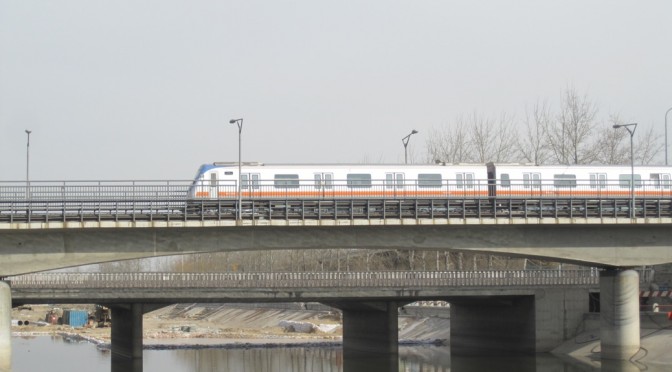
All change, please!
This post has been updated and is now on a new version of this site.
This notice will remain online until 20 September 2016.
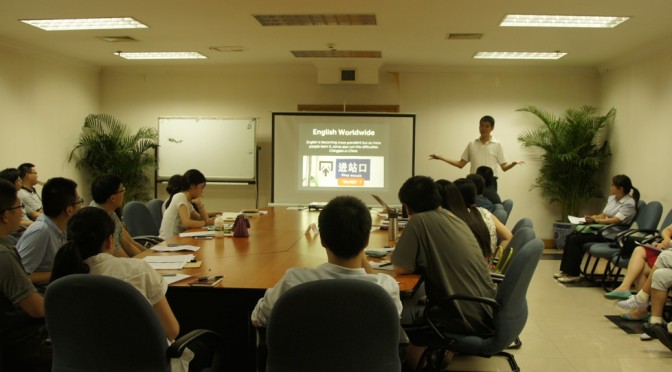
The Chinese government can at times be one of more difficult “group of students” to talk to, and it’s here in China, more than anywhere else, where a solid track record and years, if not decades, of experience, will probably be much more in your favour than anywhere else. Having solid (but also legal!… as in “non-corrupt”) relations somewhere in the system will also work in your favour.
It took me over 10 years of Chinglish-gazing around the country to be shown the right people to that one classroom in the Foreign Affairs Office of Beijing’s most internationalised district, Chaoyang, where people came in the evening hours of 15 July 2014, to listen to me speak about Chinglish — and how to fix it. For around an hour, I briefed around 20 people, most of them quite visibly enthusiastic, on how these mistakes were made, where they were often made, and how they could be best corrected. To ensure learners were best versed into the English language, even the introduction by the district’s foreign office itself was in English.
This was my first go at teaching an “all-government” audience, but if you could hold a microphone in front of thousands of unknown faces, you could do the same in front of 20 mandarins without a mic. I was happy to have helped the district of Chaoyang, home to many expats and embassies, improve their English in the run-up to hosting the APEC summit later that year.
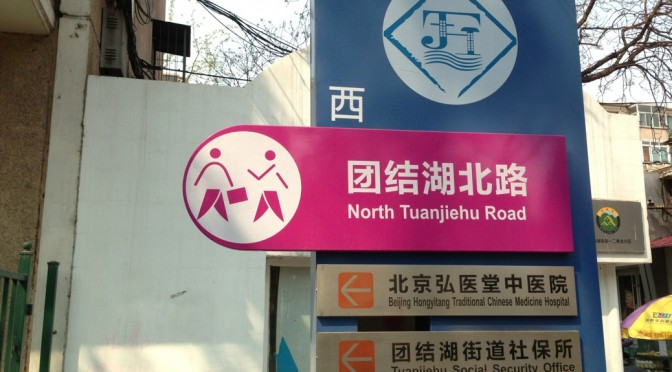
The Tuanjiehu community in the city of Beijing is noted for being one of the most active English-speaking communities in town. (Here’s hoping fellow expats living there actually get to know this…!) I’ll be here this weekend — joining both kids and seniors as we get the Tuanjiehu launch party of the recently-unveiled Handbook of Everyday English for Beijing unveiled.
The event takes place 09:30-11:30 on 31 May 2014, at Tuanjiehu, Beijing; the specific address is the Qiushi Vocational School. Here’s a map on Google: you’re closest by Tuanjiehu subway station (exit C) if you’re getting around by “underground dragon”, as Lonely Planet says it best.
Members of the media: There appears to be no separate media event, however I will arrive early by about 15 minutes or so; if you’ve questions, ask me then. Due to key appointments following the speech, I must depart at 11:30 sharp.
Join me and Alison Zhou onstage as we show off and keep locals excited about the new Handbook of Everyday English, which is your guide if you ever…
and need English that simply works.
Alison and I co-presented many shows, especially nearly all 2013 Wider World Waves shows, and we also did the VOs for the book. Oh — and if you’ve a copy and want one signed, just show it to us and let us add our John Hancock!
There appears to be no registration procedure needed; just turn up and “come to class” as usual. The language of instruction will mainly be in English. We welcome everyone, especially locals interested in English, or expats interested in either helping locals learn or are simply curious at what we’re doing.
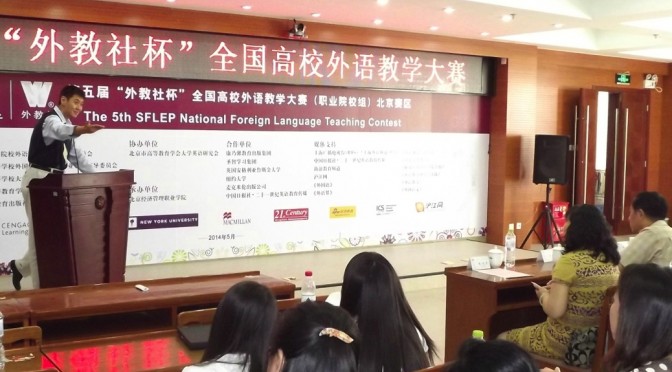
All change, please!
This page has been updated and is now on a new version of this site.
This notice will remain online until 20 September 2016.
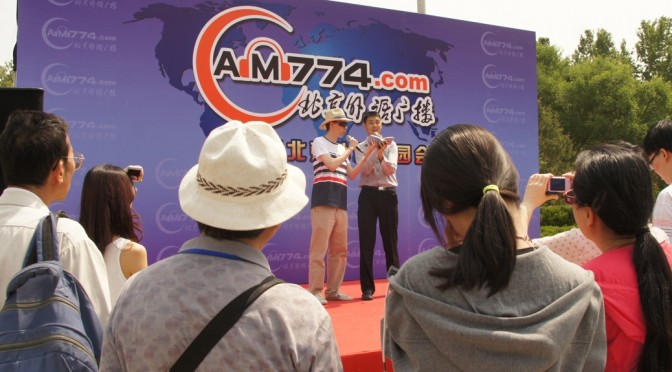
All change, please!
This post has been updated and is now on a new version of this site.
This notice will remain online until 20 September 2016.
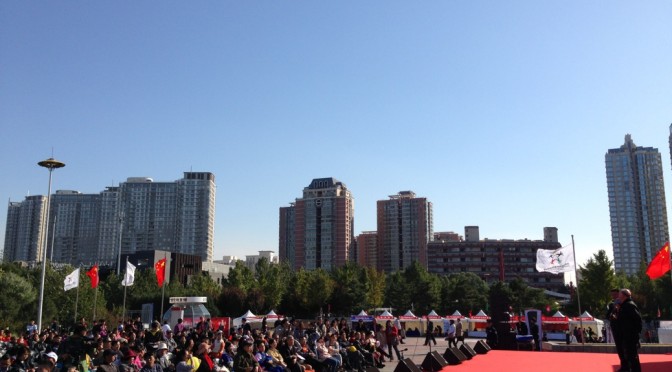
All change, please!
This page has been updated and is now on a new version of this site.
This notice will remain online until 20 September 2016.
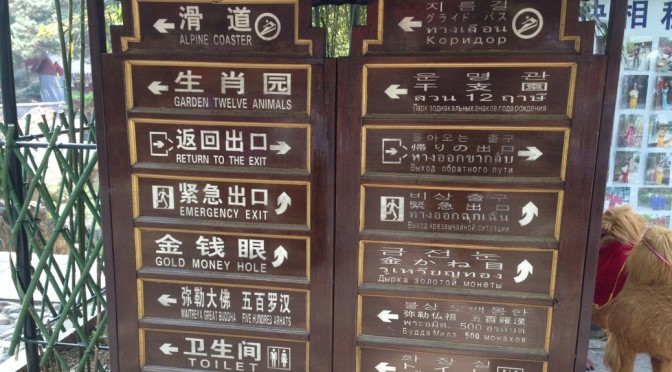
All change, please!
This post has been updated and is now on a new version of this site.
This notice will remain online until 20 September 2016.
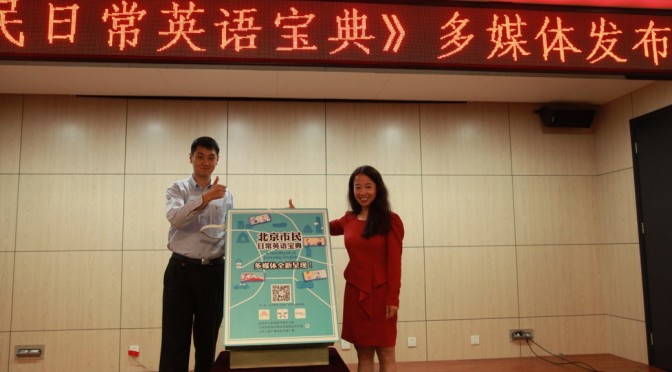
All change, please!
This post has been updated and is now on a new version of this site.
This notice will remain online until 20 September 2016.

All change, please!
This post has been updated and is now on a new version of this site.
This notice will remain online until 20 September 2016.
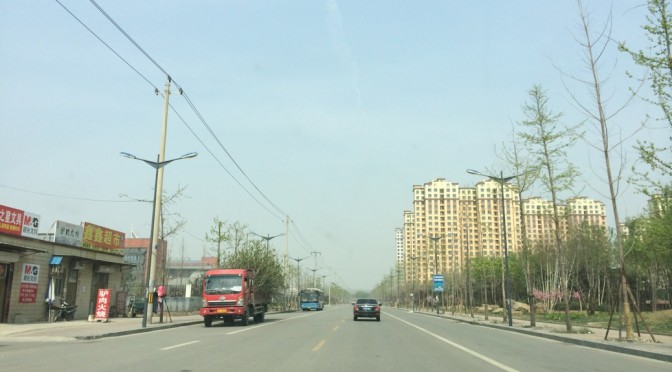
The city of Beijing is promulgating two new regulations on the roads:—
Its rationale: We need to keep the city to ourselves… we need to give Beijing cars priority in Beijing… so there!
And to that new rule I say: #FAIL. This is the typical knee-jerk reaction one expects from .gov.anywhere… EU citizens “overpopulate” Switzerland (are they not afforded “freedom of movement”?), so the Swiss go to the polls and literally votes them out (killer immigrant quotas to come); Beijing’s traffic gets awful, so City Hall goes and starts hurrying non-Beijing cars away from the centre of town.
Never before were you an alien in one’s own country. Or as the German would say, Ausländer im eigenen Inland. This is “logic” that defies logic.
It’s probably no secret much of the planet isn’t having its best days as of late. But rather than to exclude, we can elect to include…
Include Tianjin and Hebei, nearby cities / provinces to Beijing, when you grow. Now the “CCP old guard” way to grow is to chuck the surrounding provinces all heavy industry. Great, so their people are polluted way further. (The next bit, then, is to throw them out to He’nan — a province already badly strangled in China when it comes to the image / inhabitants — He’nan people are on a lot of people’s “s**tlist” just for being He’nan people.) The new way, then, would be to dismantle or redo heavy industry, and spread them to parts near you (but outside of the Jing) so that they can both exist and no-one’s really gonna get hurt in all this.
Include the immigrants in your society and let them become you. If foreigners must be “foreign criminals”, that’s a Swiss fault as much as it is a foreign fault. The new way, then, would be to educate them better. Invest in the education of their home countries, so that they already know how to be better civilised before they move in.
To randomly exclude and to discriminate only makes an already bad situation worse. To be more inclusive towards all would make things much better.